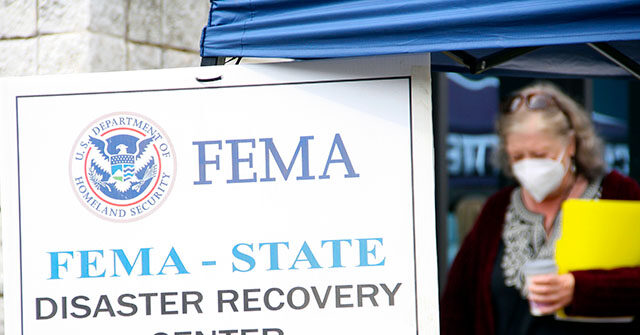In the aftermath of Hurricane Milton, troubling allegations have emerged regarding the actions of certain FEMA officials and relief workers. According to a report, Marn’i Washington, a FEMA supervisor, directed hurricane relief workers to intentionally bypass homes displaying Support for President-elect Donald Trump, effectively denying assistance to those residents. Accounts from several government employees indicate that at least twenty homes in Lake Placid, Florida, were skipped over due to the presence of Trump signs or flags. These incidents were documented with messages in government systems like “Trump sign no entry per leadership,” leading residents to miss out on potential FEMA assistance during a critical recovery period.
Witnesses of these occurrences pointed out that the guidance to discriminate against Trump supporters was delivered verbally and through group communication channels. Vulnerable communities, already reeling from the impact of the hurricane, faced further hardships due to policies that appeared to politicize the distribution of disaster aid. The affected area, which solidly backed Trump in the previous election by a significant margin, highlights the potential implications, as residents felt excluded from the support they were entitled to based solely on their political affiliations.
Adding to the complexity of the situation, the volunteer government employees, part of a Department of Homeland Security surge capacity force team, reported that they were eager to assist amid FEMA’s short staffing following the disaster. Ironically, their intention to help turned sour when they learned they were expected to discriminate against certain residents, leaving them feeling disillusioned and appalled. One volunteer expressed disbelief that a federal agency would condone such behavior, illustrating a crisis of trust not only among citizens but also within the ranks of employees meant to provide relief.
The scenario is further compounded by reports of inadequate federal response post-Hurricane Helene, which affected communities in western North Carolina and surrounding areas. Many residents interviewed expressed frustration over what they perceived as a lackluster response from both FEMA and the Biden-Harris administration. Specifically, residents voiced their discontent over being left to handle the aftermath of the storm without adequate federal support, illustrating a disconnect between governmental promises and the reality faced by citizens on the ground.
One resident from the town of Bat Cave sharply criticized the federal response, stating emphatically that locals had taken it upon themselves to manage cleanup efforts, underscoring a growing sentiment of abandonment among community members. Another resident, Jordan Lanning, highlighted the lag in federal response time, claiming that it took five days for federal aid to arrive in their area. Lanning’s remarks captured the frustration with a government that seemed to prioritize bureaucratic processes over immediate humanitarian needs. The implication of a “them versus us” mentality was a poignant reflection on how residents felt sidelined by their own government in times of crisis.
This troubling pattern of behavior raises critical questions about the integrity and impartiality of disaster relief efforts. The reported discrimination against citizens based on their political preferences undermines the core principles of equity and service that agencies like FEMA strive to uphold. Furthermore, the perceived inadequacy in the federal response to recent hurricanes casts a shadow over the current administration’s commitment to serving all constituents. As the nation grapples with the implications of these actions, it becomes increasingly apparent that robust reforms are necessary to ensure that disaster relief efforts are devoid of political bias, returning focus to the true purpose of these agencies: providing assistance to those in need, regardless of their individual political beliefs.

